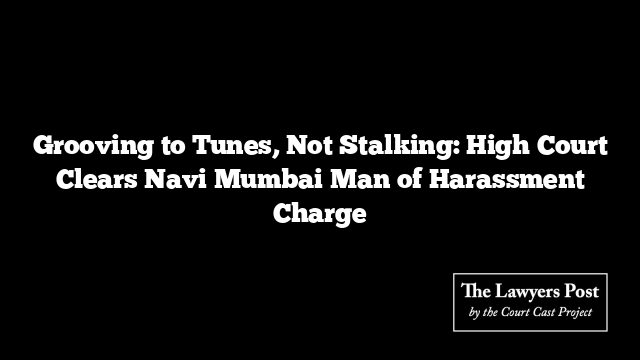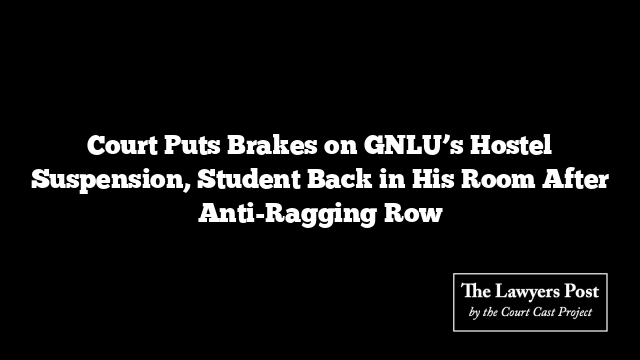In a unique judgment, the Bombay High Court exonerated a man accused of stalking, ruling that nodding his head to loud music while riding a two-wheeler does not amount to an attempt to engage or interact with the complainant. The court found that such behavior, though reckless, fell short of the legal threshold required for stalking under Section 354D of the Indian Penal Code (IPC).
The case revolved around an incident from May 27, 2017, near Nerul railway station, where Rakesh Matasharan Shukla, the accused, was riding a motorcycle with music blasting through his headphones. A woman on a scooter alleged that Shukla pursued her, honked aggressively, and made gestures that caused her to lose control of her vehicle. She claimed the encounter left her injured, with wounds on her elbow, shoulder, and thigh.
A taxi driver corroborated the woman’s account, testifying that Shukla drove erratically and dangerously close to her lane. Shukla was initially convicted by a trial court of stalking, rash driving, and causing hurt under Sections 279, 354D, and 337 of the IPC. He received sentences totaling three years, later reduced to three months on appeal at the district level.
However, Shukla sought further relief from the Bombay High Court. His defense pointed to inconsistencies in the woman’s testimony and noted a three-day delay in filing the First Information Report (FIR), reportedly due to a family wedding. Arguing that the two were strangers, the defense contended that the prosecution had failed to establish any intent to stalk or engage with the complainant.
The prosecution maintained that Shukla’s reckless actions — honking, weaving between lanes, and overtaking attempts — were sufficient to cause the complainant distress and injury. Medical reports confirmed her injuries, and the prosecution argued that the delay in filing the FIR did not diminish her credibility.
After reviewing the evidence, Justice Milind Jadhav ruled that while Shukla’s behavior was indeed reckless, it did not constitute stalking. The court noted that merely “grooving to music” could not be stretched to imply an attempt to draw the complainant’s attention or establish any form of interaction. “The act of shaking his neck to loud music, as described, does not fit the legal framework of stalking under Section 354D,” the judgment observed.
The court upheld the convictions for rash driving and causing hurt under Sections 279 and 337, affirming that Shukla’s erratic driving had contributed to the complainant’s accident. “Listening to music with headphones while riding is itself a dangerous act, and constant weaving through traffic escalated the risk, resulting in the injuries sustained by the complainant,” the judge emphasized.
In a partial reprieve, the court quashed the stalking charge and reduced Shukla’s sentence to time already served. Having spent 36 days in custody, Shukla was ordered to be released immediately. The court also acknowledged his role as the sole breadwinner for his family, including his wife and three children, while delivering its judgment.
The case highlights a nuanced distinction between reckless driving and criminal intent, underscoring the challenge of interpreting behavior on crowded urban roads.





